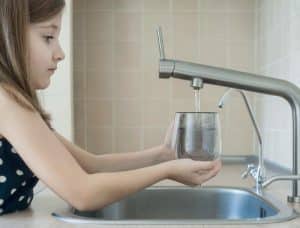How to Test the Effectiveness of Water Softeners?
Water softeners remove the hard minerals from your drinking water. They are a valuable addition to any home, but you may not always be sure whether or not your softener is working properly.
(Looking for an “at-home water filtration system“? Contact us Today!)

You can test the effectiveness of your water softener by using a variety of simple tests. Some of these tests are more scientific than others, but all can be a good way to check that your softener is working as expected.
If you notice a scaling buildup on your sinks and shower walls after switching to a softener, it is a good indication that the system is not working correctly. This is caused by the mineral deposits that hard water leaves behind on your surfaces.
Scale is a whitish or yellowish substance that can form on your sinks, showers, and other fixtures when hard water clings to them. If your water softener is working correctly, you shouldn’t see any scaling on these items after the system has been running for a few weeks.
Another way to test the effectiveness of your water softener is to measure your total dissolved solids (TDS) level. This will give you a general idea of how much ions are present in your water and will alert you to any changes that may indicate the need for maintenance or repair.
Your water should be free of minerals like iron and manganese, so if you’re finding that your TDS levels are rising, this is a sign that your water softener is not working as it should be. If you have a TDS meter, you can test this by adding a sample of your water to the meter and then measuring the result.
If your TDS levels are rising rapidly, you should consider calling a professional to have the problem repaired or replaced. This can be a costly option, so it’s best to try to fix the issue before it becomes severe.
Lathering a Bucket of Soap with Hard Water is Easy
One of the easiest tests for the effectiveness of your water softener is simply to take a bucket full of water and add some soap. If the water is soft, your soap will lather and produce bubbles, which are a sign that the salt is doing its job. If it is hard, the soap won’t lather and will only leave a thin layer of soap residue on your skin.
When you use soap with hard water, you will need to add more detergent than usual to achieve the same amount of suds. The same applies to laundry. If the water is hard, you will need to add more shampoo and conditioner than normal, as well.
You can also use a test kit that contains strips that will let you know how hard your water is. These are available at most home hardware stores, and they can cost about $10 for a box of 100 or so strips.
Alternatively, you can buy a digital tester that will tell you how hard your water is. These will be more expensive, but they can be used on a regular basis to alert you to any issues that may arise with your water softener.

